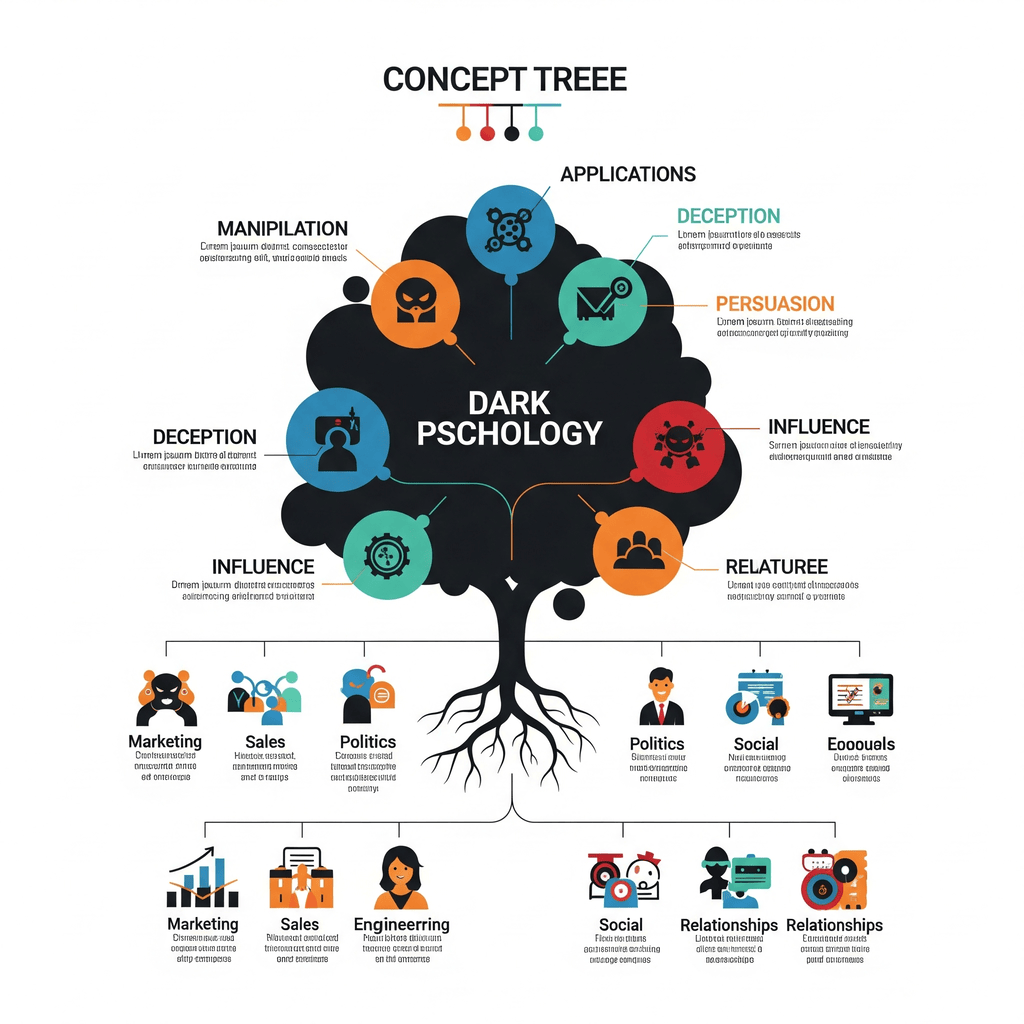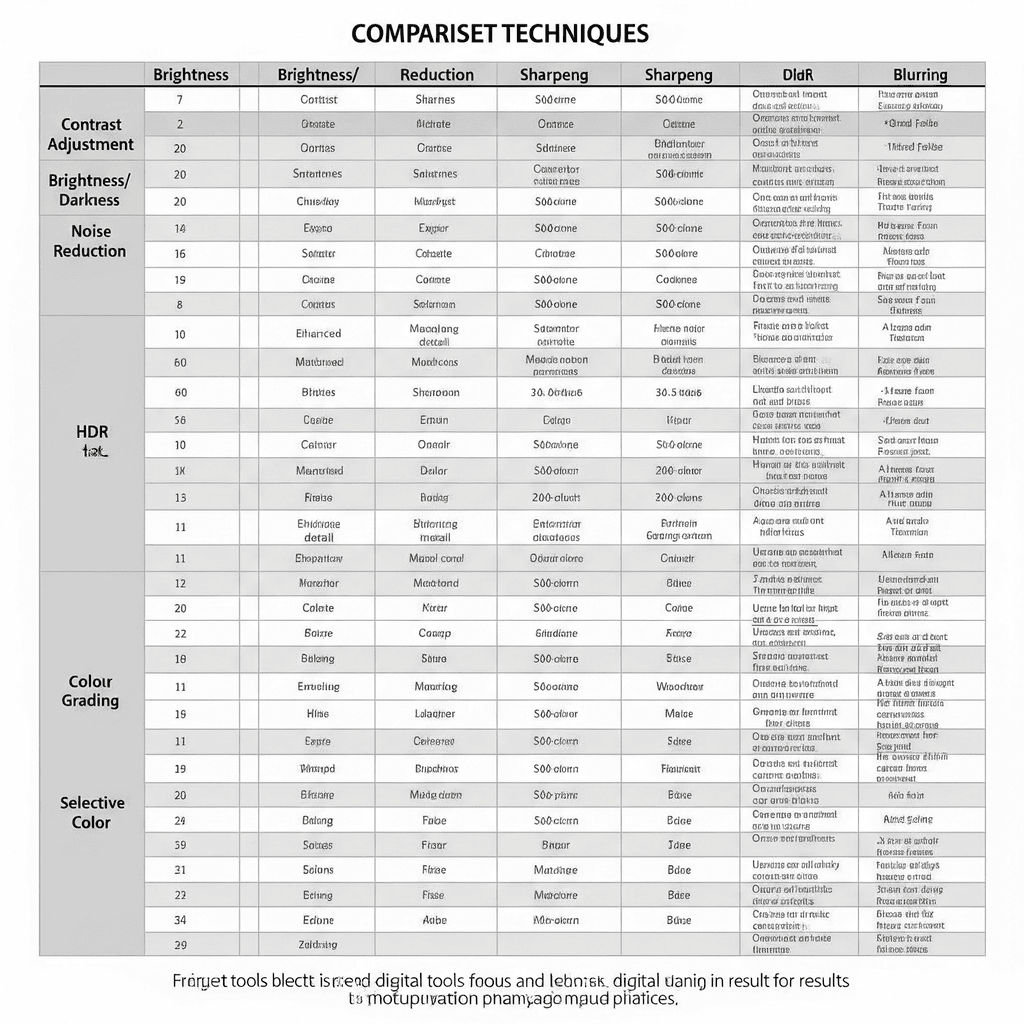In a modern world filled with competition and intense social interactions, understanding dark psychology and manipulation is becoming increasingly important. Many people are unaware that they are victims of manipulation techniques, while others want to know how to identify, or even master, these techniques so they won’t be easily deceived. The book “Manipulation: Dark Psychology to Manipulate and Control People” by Arthur Horn offers deep insights into the world of dark psychology, manipulation techniques, and the ethical boundaries that must be upheld by anyone seeking to understand or use this knowledge.
This article will explore the foundations of dark psychology, the most commonly used manipulation techniques, the power of knowledge possessed by the reader, and the importance of responsibility and ethics in applying (or facing) manipulation techniques. However, remember, as Arthur Horn himself says, this knowledge is a double-edged sword that must be used wisely.
Understanding the Foundations of Dark Psychology
Many people think dark psychology is only related to evil or criminal acts. In reality, dark psychology is a branch of psychology that studies the ways in which someone can influence, control, or even manipulate others for specific purposes. This knowledge is not always used for negative ends; in the right context, it can even be used to protect oneself from exploitation or to help others escape manipulative situations.
Dark psychology is rooted in a deep understanding of human motivation, emotions, and psychological weaknesses. Arthur Horn emphasizes that recognizing the basic patterns of dark psychology is the first step to protecting yourself from manipulation and gaining control over your social interactions. By recognizing subtle signals, you can distinguish between healthy communication and conversations laden with manipulative traps.
However, this book not only reveals “what” dark psychology is, but also highlights why this understanding is so important in the modern era. As information spreads rapidly and people are easily exposed to external influences, the ability to detect and resist manipulation becomes a fundamental life skill.
A comprehensive framework for understanding and dismantling the foundations of dark psychology, along with its distinctive characteristics, is systematically outlined in this book. You will find a thought structure that can be applied to recognize and shield yourself from manipulation techniques that are often invisible.

Manipulation Techniques in Dark Psychology
Manipulation techniques are at the heart of dark psychology. In his book, Arthur Horn explains various techniques used by skilled manipulators, ranging from subtle methods like gaslighting and love bombing to more overt techniques such as guilt-tripping or the silent treatment. Each technique has its own unique psychological basis and operates in a different way.
For example, gaslighting is often used to make victims doubt their own perceptions or memories. This process usually occurs gradually, so the victim does not realize they are being manipulated. On the other hand, love bombing exploits the basic human need for love and recognition. The manipulator showers the victim with attention and praise, then suddenly withdraws, creating emotional dependence.
Knowledge of these techniques enables you to be more vigilant in both personal and professional relationships. Furthermore, this understanding can help you identify manipulation patterns in the workplace, family, or even in digital interactions.
However, it is important to remember that using these techniques without ethical consideration can cause serious psychological harm to victims. This book thoroughly examines not only how these techniques work, but also the psychological impact they cause.
Advanced techniques and practical application examples of each manipulation method, along with effective survival strategies, are available exclusively in MentorBuku’s special summary.

Read also : I Am Malala by Malala Yousafzai
Everyday Examples and Applications
Manipulation techniques are not limited to romantic relationships or work environments. Often, we encounter manipulation within family, friendships, and even on social media. A simple example is the use of guilt to force someone into making a decision they don’t actually want. Or, someone might use the silent treatment to make you feel guilty and eventually comply with their wishes.
In the digital age, manipulation has become even more sophisticated. Social media algorithms can exploit psychological weaknesses to keep users constantly engaged and consuming certain content. Therefore, learning to recognize these manipulation patterns is crucial so you don’t easily get trapped in a harmful cycle.
However, practical applications and in-depth case studies that you can use as real references for dealing with manipulation are available exclusively in MentorBuku’s complete materials.
Read also : Weird Parenting Wins by Hillary Frank
The Power of Knowledge & Ethical Responsibility
Delving into dark psychology and manipulation techniques is like wielding a double-edged sword. This knowledge can be an invaluable tool for protecting yourself from negative influences, but it can also be extremely dangerous if used for the wrong purposes. For this reason, Arthur Horn emphasizes the importance of ethics and responsibility in applying these techniques.
Anyone studying dark psychology must possess a strong moral compass. Using this knowledge to build healthy relationships, empower others, or protect oneself from social predators is a wise goal. However, if it is used to exploit other people’s weaknesses, the psychological and social consequences can be highly damaging.
The author even explicitly states in his book that the information provided is not professional advice, but insights that should be used wisely and responsibly. This is the fundamental difference between those who become predatory manipulators and those who act as protectors for themselves and others.
Discussions on how to build a moral compass, as well as best practices for using dark psychology knowledge ethically, are explored in depth in MentorBuku’s advanced modules.
Risks and Limitations in Manipulation Practices
Although manipulation techniques may seem tempting to some, the risks involved cannot be ignored. The psychological impact on victims can last a long time, and in some cases, damaged relationships may never be repaired. Furthermore, manipulators who are caught often lose the trust and reputation they have in the eyes of others.
This book reminds us that there is no manipulation technique that is truly safe. Every action has consequences, both for the manipulator and the victim. Therefore, understanding the limitations and risks before attempting to apply dark psychology techniques is a very important step.
There are three common mistakes that beginners often make when trying to use manipulation techniques, ranging from misreading the situation to failing to understand the victim’s motivation. These mistakes, along with ways to avoid them, are discussed in detail in MentorBuku’s exclusive summary.
Read also: Principles: Life and Work by Ray Dalio
Conclusion & Next Steps
Understanding dark psychology and manipulation techniques is the first step to becoming a more resilient and emotionally intelligent individual. However, as Arthur Horn has warned, this knowledge must be used wisely and responsibly. By equipping yourself with these insights, you can not only protect yourself from manipulation but also help those around you.
You’ve just seen the foundation. These concepts are only the tip of the iceberg of what this book has to offer. How do you apply them step by step, avoid common pitfalls, and integrate them into your strategy? All those answers are inside.
Sign up and Get Free Access at MentorBuku Now!